A Thought Leader Series Piece
 By Christopher Boone By Christopher Boone
Note: Christopher Boone became the Interim Dean of Arizona State University's School of Sustainability in July. He continues to teach in the School of Sustainability and the School of Human Evolution and Social Change. He recently co-edited the book, "Urbanization and Sustainability: Linking urban ecology, environmental justice and global environmental change."
History shows that significant transitions are possible, and these radical changes can have far-reaching impacts on human beings and the environment. In a span of just three human lifespans—roughly 200 years—we have experienced demographic, energy, and economic transitions that have altered the human condition and our relationship with the planet. In the United States in 1800, birth rates were high, but life could be miserably short; people depended on animals, falling water, and wood for energy; and the economy was based on agriculture and resource extraction.
Today in the U.S., families are not large enough to replace the current generation, but people can expect to enjoy long lives; we are utterly dependent on fossil fuels for energy; and the economy is based mainly on services. The implications of these transitions are multi-faceted and complex, but they have contributed to, among other concerns, rising energy and material demands, global climate change, biodiversity loss, and increasing disparities of human well-being.
Today's transition: urbanism
We are now undergoing another transition, the shift to an urban world. Although cities have existed for at least 10,000 years, not until quite recently could a majority of people live in urban centers. England became the first urban country in 1851, meaning more than half of its population lived in cities. The U.S. did not reach the urban threshold until 1920.
Now that half of humanity lives in cities and nearly all of the projected 3 billion in population growth by 2050 is expected to occur in urban environments, it is critically important—as the transition is underway—to think about sustainable pathways forward. This is no easy goal, especially since many of the current sustainability challenges are the result of living in highly urbanized societies. Cities now consume 65 percent of the world's energy and generate 70 percent of global greenhouse gas emissions. In China, people who move from the countryside to its burgeoning cities double their energy consumption and carbon emissions. Higher incomes in cities mean greater demand for resources and higher production of wastes, both of which threaten the health of the world's ecosystems.
The twentieth-century model of urbanization cannot be sustained. Instead we need to promote and guide the best assets of urban life—innovation, opportunities for collaboration and exchange, an educated and healthy citizenry, diversity of people and opportunities, concentration of financial, human, and social capital—to build a desirable, sustainable future. Urbanization is going to happen, and happen on a grand scale. It would be unwise to simply stand on the sidelines and watch it unfold; sustainability depends on the ability and willingness to "bend the curve" rather than hope or wait for the system to correct itself.
Read more »
|
|
GreenBiz.com: How to turn any leader into a sustainability leader
|
|
During an Aug. 20 GreenBiz webcast, Senior Sustainability Scientist George Basile and sustainability consultant Bruno Sarda discussed the steps to become a transformational sustainability leader. Read more »
|

|
ASU-led national algae testbed opens enrollment for fall workshop
|
|
The Algae Testbed Public-Private-Partnership (ATP3) will host a workshop on Nov. 4-8 covering everything from algae culture handling to harvesting and analysis. Read more »
|
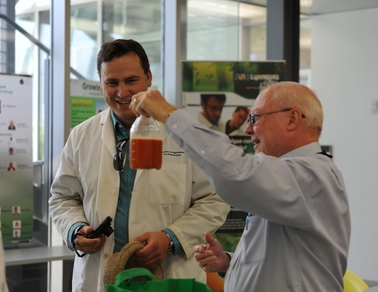
|
Phoenix Business Journal: Experts warn of water rationing in Arizona
|
|
Global Institute of Sustainability Director of Research Development John Sabo co-authored a report on water scarcity in the West, proposing that farming efficiency, municipal water re-use, and conservation are better options. Read more »
|
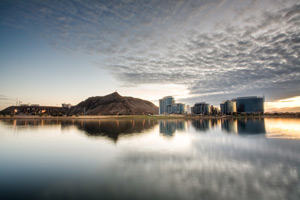
|
ASU art professor teaches Honduran youth sustainability through photography
|
|
Julie Anand, a senior sustainability scholar, used natural cyanotypes because they only need sunlight, water, and native vegetation to help Honduran children connect with the natural world and learn placemaking. Read more »
|
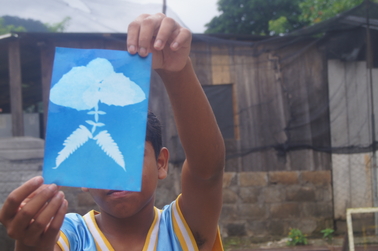
|
Green Living AZ Magazine: Cotton Perspectives
|
|
Sustainability Scientist Hallie Eakin says Arizona's cotton farmers want to continue, but they are being tested by drought, insecure water irrigation, and public misunderstanding. Read more »
|
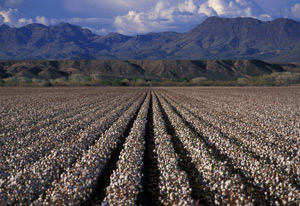
|
ASU LightWorks, Sandia partner to tackle renewable energy challenges
|
|
The memorandum of understanding aims to encourage collaborative research, build educational programs, and inform policy to advance technologies like hybrid fuels, solar power, and algae biofuels. Read more »
|

|
National exhibit to feature ASU students’ sustainable urban design research
|
|
Students in Sustainability Scientist David Pijawka's Sustainable Cities course interviewed park goers, community members, and city dwellers to research Phoenix's biophilic design concepts and applications. Read more »
|
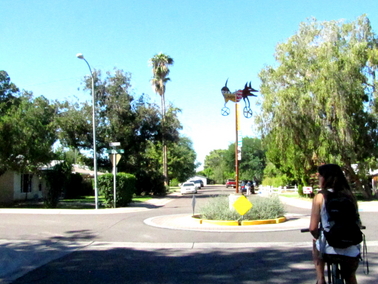
|
New event series reveals the arts and humanities of sustainability
|
|
In partnership with ASU's Institute of Humanities Research, ASU Art Museum, and Herberger Institute for Design and the Arts, the Global Institute of Sustainability's new series will bring more experts from around the world to imagine a sustainable future through art, history, and storytelling. Read more »
|

|
|